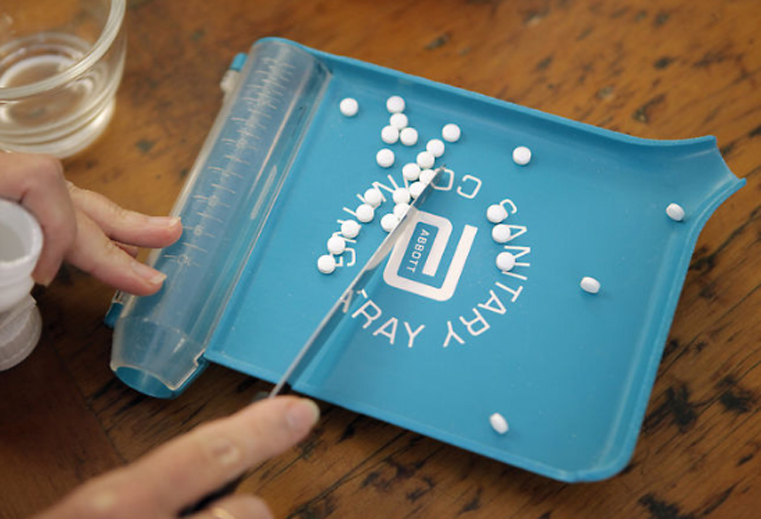Substance abuse in Maine is estimated to cost the state $1.18 billion a year, but the human cost can’t be tallied.
More Mainers died from pharmaceutical drug overdoses than in car crashes in 2009, with nearly 1,400 such deaths in the last decade.
Hundreds of babies were born last year already addicted to opiates. They face a painful withdrawal and, if they survive, a lifetime of health problems.
Far too many families have seen drug use derail the lives of loved ones, leaving them unable to function happily or constructively.
Prescription drugs intended to help people in pain have been diverted around our state, creating pernicious problems, including addiction and overdose, that have devastated the lives of ever-younger Mainers.
Staff Writer John Richardson examined these problems in-depth in the six-part series, “Painkillers in Maine: A cure with a curse,” that concludes in today’s paper. Anyone who missed it can read it online at www.pressherald.com, and will find it well worth the effort.
The important thing to remember is that although the problem is huge and multifaceted, it is not beyond our ability to respond. This was not imposed on us by foreign drug lords smuggling their product into our communities. We did this to ourselves with public policy decisions, and we can take steps to turn back this dangerous trend.
The response has to start with the doctors who are writing prescriptions. In too many cases the drugs they are prescribing are winding up on the black market.
Maine has been addressing this problem for a decade, and officials have created tools that could help fight the problem — but they are not being used. Doctors have access to a statewide database of patients who have been prescribed narcotic painkillers. It would reveal which ones are “doctor shopping” and getting multiple prescriptions to treat the same condition.
The problem is that too few providers use the database, and they are not required to. Additionally, Richardson reported, many doctors won’t turn in a patient who is known to be abusing medication.
If there are doctors who won’t slow the supply on their own, their cooperation should be required. Doctors who don’t check the database or who hide patients who are diverting medication should be treated as lawbreakers, just like the dealers who distribute these pills.
Law enforcement is key to reducing supply, but it can’t be the only focus.
Reducing the number of painkillers on the street will help somewhat, but it can also create other problems.
Addicts will crave their drugs, and making the pills more scarce will make them more expensive, creating profit for the dealers and driving up street crime. It could also cause addicts to move toward street drugs such as heroin, enriching another criminal network.
An effective strategy demands adequate spending on treatment. That’s not being soft on crime or treating perpetrators as victims, it’s just a fact.
Unfortunately, the way that the federal government pays for health care is undermining Maine’s already less-than-adequate treatment system. In an effort to encourage small, community-based treatment centers, federal Medicaid reimbursement is limited to treatment centers with fewer than 16 residents.
But as the problem explodes in Maine, several overburdened centers have exceeded the maximum number of patients, putting them in danger of losing funding.
It makes no sense to penalize a treatment center for providing too much help, or forcing one to turn away patients in order to hold on to funding. Maine should have a waiver from the federal government to suspend this rule during this crisis.
Other treatment options need to be developed, but treatment isn’t the whole answer either. Education is also a key element. Kids need to know that what might seem like a harmless experiment with prescription drugs could lead to a lifetime of addiction or an early death. Families should know that an old half-bottle of pills in the medicine cabinet could be a deadly threat to someone they love.
And everyone needs to be educated about the dynamics of addiction and how it should be addressed.
This is not just a problem for doctors, police officers, drug-treatment providers or teachers. It is a societal problem that will require a team effort to make a difference.The important thing to remember is that although the problem is huge and multifaceted, it is not beyond our ability to respond.
Copy the Story Link
Send questions/comments to the editors.



Success. Please wait for the page to reload. If the page does not reload within 5 seconds, please refresh the page.
Enter your email and password to access comments.
Hi, to comment on stories you must . This profile is in addition to your subscription and website login.
Already have a commenting profile? .
Invalid username/password.
Please check your email to confirm and complete your registration.
Only subscribers are eligible to post comments. Please subscribe or login first for digital access. Here’s why.
Use the form below to reset your password. When you've submitted your account email, we will send an email with a reset code.